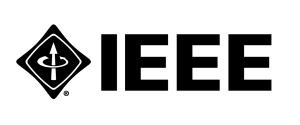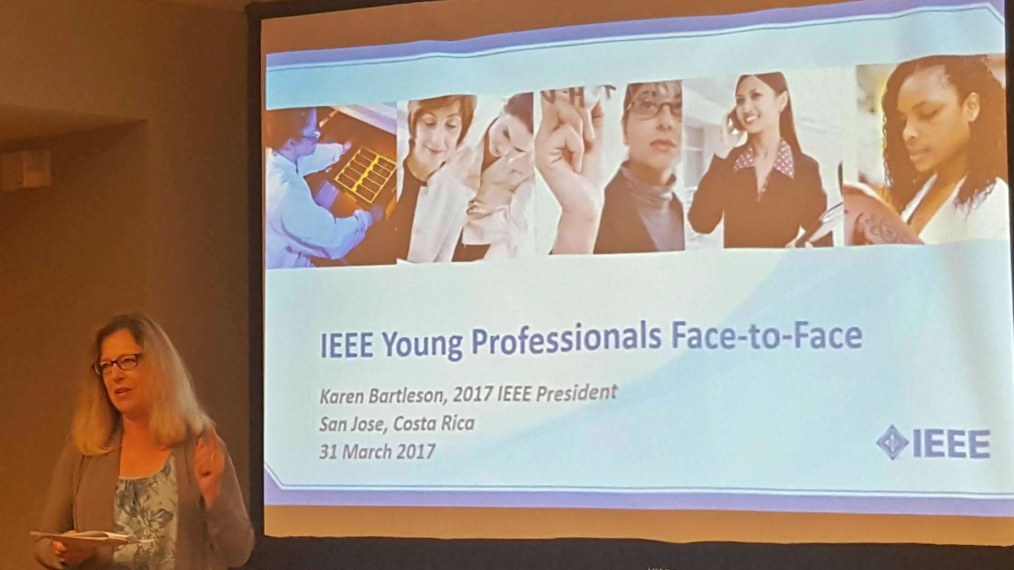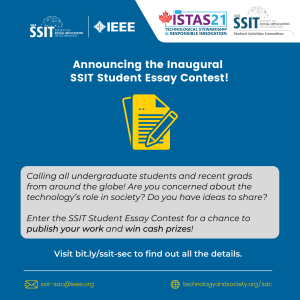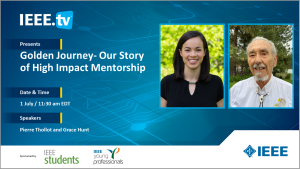IEEE President and CEO, Karen Bartleson, delivered what can only be described as a remarkable and inspirational opening to the IEEE Young Professionals Face to Face meeting in San Jose, Costa Rica.
Karen has been a long term supporter and mentor of IEEE students and young professionalsand her presence at the IEEE Young Professional meeting is yet another statement of how important this group is to the IEEE’s future. The IEEE Young Professional leadership has gathered in Costa Rica to discuss important matters including how to provide more value to our members, provide more flexibility with their volunteering and much more.
Dear IEEE Young Professionals,
I want to talk with you today about us—the men and women, young, old, and midcareer, that make up IEEE’s rich and diverse global community.
At some point during my career in industry, I attended one of those leadership seminars you all are probably familiar with. Fortunately, this one did not involve eggs or ropes. The facilitator asked me a very direct, very simple question:
“Who are you, Karen?”
I thought there was a very simple answer. So I started listing the facts about who I was:
- I’m an engineer.
- I’m a firm believer in international standards, and I love the work I’m doing as part of IEEE’s Standards Association.
- I’m an experienced manager of people.
- I’m a working mother and a wife.
- I’m a proud graduate from Cal Poly in California.
When I had finished, the facilitator just looked at me, smiled, and said the one word that changed the way I would answer that “who are you” question for the rest of my life. He said:
“Wrong.”
He then proceeded to explain to me—and I’ve never forgotten this—that all of those things I listed were not who I was…they were what I was. Being an engineer, being a supporter of standards, managing people, raising children, being a Cal Poly grad—all of those were accomplishments and activities…but they didn’t get to who I was as a person.
The facilitator explained it simply: it’s what we hold nearest and dearest about ourselves – those core elements and values that drive our decisions, that help shape the way in which others see us – these are the things that make us who we are.
To get at these core values, the facilitator asked questions such as:
- Do you grow and nurture the talent you see in yourself and others?
- Do you trust those around you, and do you inspire trust in return?
- Do you prefer discussions over arguments?
- Are you better as an individual, or as part of a larger, collaborative effort?
- Are your actions driven by integrity, or by expediency?
These are the kinds of questions that we can ask ourselves, as individuals, to determine who we are. The answers tell us if we are self-centered or giving of ourselves; if we are willing to commit an act we know to be scary in the service of a greater good. These are the questions that reveal our character as individuals, and signal to those we encounter, “This is a person of worth. This is someone you would be proud, happy or honored to be associated with.”
Yet is not enough to ask these questions only of ourselves. Questions like these serve as a filter for institutions also. These are the questions we ask of the organizations we choose to belong to. In the end, perhaps it all comes down to one question:
Do these organizations, these groups, hold the same things in high regard that I do?
In my career and personal life, I have belonged to many other groups—but none of them compare to IEEE. I’ll tell you why.
Let me take a moment to read something to you:
We, the members and employees of IEEE, recognize the importance of our technologies in affecting the quality of life throughout the world and we accept a personal obligation to our professions, the members of IEEE, and other individuals involved in IEEE activities in our fields of interest. By this obligation we commit ourselves to the highest standards of integrity, responsible behavior, and ethical and professional conduct.
That’s the opening paragraph to IEEE’s Code of Conduct. In that short paragraph, IEEE spells out what it holds in high regard—integrity, ethics, responsible behavior—and the obligation IEEE has, as an organization, to embrace those values. IEEE doesn’t choose to do it because it looks good on paper—IEEE chooses to do this because it is the right thing to do. It is the right thing to do for the benefit of our professions. It is the right thing to do for the benefit of our friends, collaborators, and colleagues. It is the right thing to do to maintain the integrity, dignity, and quality of IEEE’s unique international community.
And that international community is truly unlike any other. There is no group on the planet that is larger in driving more advances in technology—across the widest breadth of fields and disciplines—than IEEE. We are a diverse community, a community filled with technology professionals of every race, every creed, and every color. All are welcome, all are respected, regardless of nationality, ethnicity, religion, or gender—and all are contributing in countless ways to moving technology forward across the spectrum of IEEE’s fields of interest.
Does everything always go smoothly? No. Do we always share the same viewpoints? Again, no.
But that, too, is what sets IEEE apart. Let me describe some of the ideals of IEEE.
We welcome multiple voices and viewpoints. We invite them to discuss, to exchange ideas, to work together to create excellence that will surpass anything we might have accomplished as individuals. Excellence is never easy—it requires hard work, it requires collaboration, and it requires cooperation. That’s something that has been a hallmark of IEEE since its founding—and it will continue to serve our organization for the coming centuries of our history.
Think about what IEEE’s community has done since that founding in 1884.
- We have changed the ways in which people communicate—not once, but multiple times.
- We have changed the ways in which information is exchanged—again, not once, but multiple times.
- We have changed the face of energy, of healthcare, of aerospace, and of dozens of other pursuits.
IEEE, as a community, has for decades seen the challenges facing our world. Time and time again, IEEE has risen to those challenges, finding solutions that meet or exceed expectations.
The most important part of “Advancing Technology to Benefit Humanity,” ladies and gentlemen, is not “Advancing Technology”—it is “to Benefit Humanity.”
That is who IEEE is.
We are an organization with six core values – ideals, if you like:
- Trust
- IEEE strives to be a trusted and unbiased source of technical information and forums, for technical dialog and collaboration. And this trust is extended to each other as we collaborate.
- Growth and nurturing.
- We encourage education as a fundamental activity of engineers, scientists, and technologists at all levels and at all times. We work to ensure a pipeline of students to advance our profession.
- Global community building
- We cultivate active, vibrant, and honest exchange among cross-disciplinary and interdisciplinary global communities of technical professionals.
- Partnership
- We promote a culture of respect for the employee and volunteer, again, regardless of what you look like, where you live, and what you believe in.
- Service to humanity
- We leverage science, technology, and engineering to benefit human welfare. We work to promote public awareness and understanding of the engineering profession.
- Integrity in action
- We foster a professional climate in which engineers and scientists continue to be respected for their exemplary ethical behavior and volunteerism.
Those are IEEE’s core values—those are who we are as an organization.
We don’t do what we do as engineers for the acclaim. We do it for the opportunity to change our world for the better.
And our world—despite the myriad advances in technology the last century has brought with it—still needs to be changed for the better. Not everyone enjoys clean water, or reliable energy, or the same levels of healthcare. Every day, IEEE members are working to correct that imbalance—to advance technology to benefit those whose need is greatest.
Technology can overcome tough challenges. It always has. And at no other point in recorded history have we had more possibility lying before us, ready to shape our world. Right now, on at least three different continents, IEEE members and fellow engineers and scientists are working on mapping the human brain. They are doing so with a level of focus and intensity not seen since efforts to map the human genome.
And they will succeed.
When they do, think about this—some of the most debilitating ailments of our time could be eliminated, through scientists and engineers working together. We can give people their lives and their loved ones back. We can restore quality of life to those who had little or none. We can change the world for the better, one life, one family, one community at a time.
As I said—we don’t do what we do as engineers for the acclaim. We do it for the opportunity to better our world and the lives of those living in it.
There are discoveries awaiting us that will astound us. There are technological advances that we are going to witness that would have seemed impossible just a few years ago. There are things that our futures hold for us that will, quite simply, change how we define words like “impossible” and “possible”.
I, for one, can’t wait. I don’t think you can either.
Yet, there always seems to be an element of humanity that misuses technology. Or uses it naively. This is also where IEEE plays an important role. We are now entering into the area of ethics in technology, which I predict will be more impactful than any of IEEE’s activities in the past.
What truly inspires me is that I believe the brave new world will be built by IEEE members. I know this, not only because I have watched you over the years. But also because I am now close to our Young Professionals whose enthusiasm for and dedication to IEEE is inspiring. If there is an advance in electrical or electronic engineering, you will find an IEEE member there. If there is a need for an innovation, a new sensor, a better nuclear reactor, less power loss along a transmission line, better communications, faster computers…if there is a need for any of these things, and countless more—you will find an IEEE member there.
Look to your universities, and you will find IEEE members and Student Members working on groundbreaking research, pioneering new approaches to difficult problems. Look to your industries, and you will find IEEE members taking those theories, and applying them to products, services, and applications in new and exciting ways. Look to your corridors of power, and you will find IEEE members, advising decision-makers on public policies that benefit both technology and humanity.
Look around our world, and you will find IEEE.
Which brings me to the most important part of IEEE’s history—the story we have yet to write.
It is a story that’s going to be written by IEEE’s Young Professionals, just starting careers as engineers and technologists.
A story written by IEEE Student Members, studying long hours and working in labs in universities around the world.
A story written by a young woman or man participating in a pre-university EPICS program that IEEE has brought to their community.
It is our future that remains to be written—and these exciting young women and men will be the ones who write it.
These young leaders have grown up as digital natives. Texting, apps, mobility—these are the foundations of their world. They are moving fast, they are making advances…and they are already changing our world.
If you are not mentoring an IEEE Young Professional, I would urge you to do so. If you are already such a mentor, consider reverse mentoring—be willing to learn from a Young Professional, although I imagine that has already happened. Our profession’s newest engineers are doing some incredible things, and they’re not afraid to take a chance, make a mistake, learn from it, and keep at it until they achieve success.
IEEE’s Young Professionals and Student Members—even those just discovering their passion for engineering at the pre-university level—these are our bridges to tomorrow.
And the tomorrow they see is a global one. They do not focus on what divides people, but instead what unites them. They do not care where you come from—they care about the ideas you are bringing to the collaborative work you are engaged in. They do not erect borders – they overcome barriers. They do not discriminate – they embrace differences. They care about humanity, and how the technology they are working on can benefit our global community.
These young men and women are already using their expertise and abilities to aid IEEE in its mission. They are carrying forward the work begun by those who have already logged years as leaders within academia, government, and industry. They are doing it together, and they are going to take IEEE places we cannot even begin to imagine.
In closing, I want to inspire each of you to use your abilities to their maximum to further IEEE’s mission by reading a quote from a famous US statesman:
“Never doubt that you are valuable, and powerful, and deserving of every chance and opportunity in the world to pursue and achieve your own dreams.”
Within IEEE’s global community, we are all valuable.
Our abilities as individuals, coupled with our strength as collaborators, makes us powerful.
Together, we will pursue and achieve the dream of a better tomorrow—for all humanity.
Thank you.
Karen Bartleson, CEO & President IEEE







